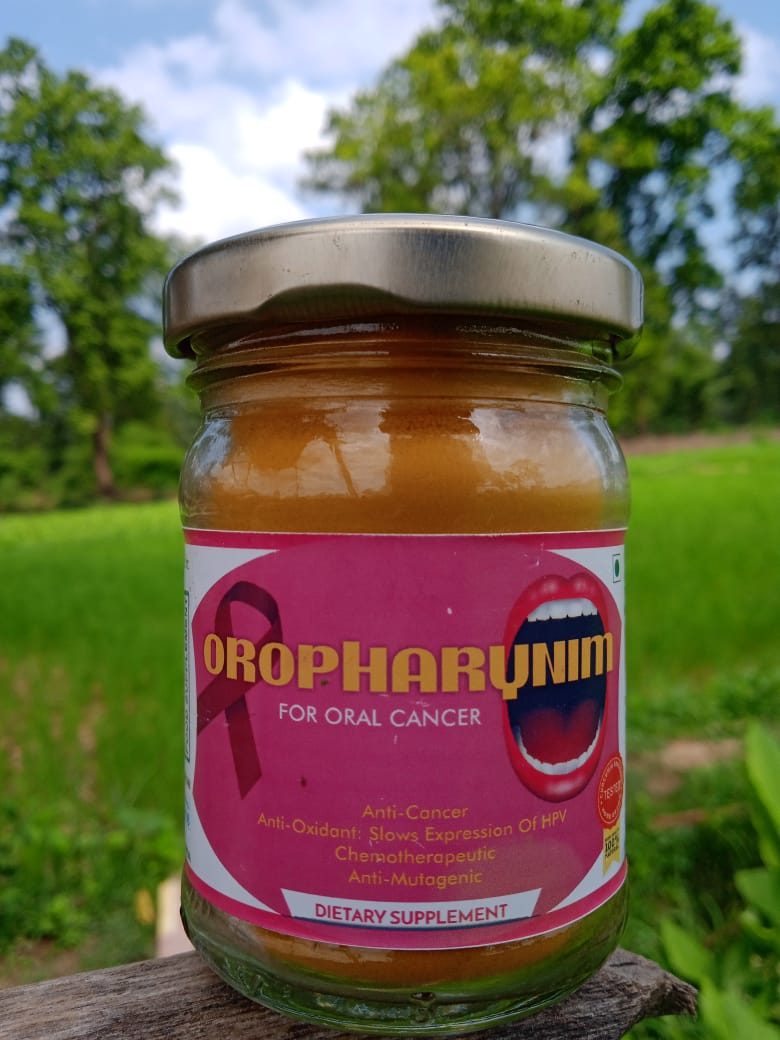Mucoepidermoid Carcinoma: Empowering Treatment and Prevention with Turmeric-based Oropharynim
Introduction
Mucoepidermoid Carcinoma is a rare and complex type of cancer that arises in the salivary glands. Early detection and effective treatment are essential for improving survival rates. In this article, we will explore the symptoms, causes, and treatment options for Mucoepidermoid Carcinoma, while highlighting the benefits of Oropharynim, a turmeric-based supplement from Bagdara Farms, in both treatment and prevention.
Understanding Mucoepidermoid Carcinoma
Mucoepidermoid Carcinoma originates in the salivary glands, where it exhibits a diverse mixture of mucous-secreting and squamous cells. The cancer’s behavior and prognosis can vary depending on the tumor’s grade and stage.
Symptoms of Mucoepidermoid Carcinoma:
1. Swelling or a painless lump in the affected area, typically near the jaw or mouth.
2. Difficulty swallowing or opening the mouth.
3. Numbness or weakness in the facial region.
4. Persistent pain or discomfort in the jaw or mouth.
5. Changes in facial expression or muscle control.
Causes and Risk Factors of Mucoepidermoid Carcinoma:
The exact cause of Mucoepidermoid Carcinoma remains uncertain. However, certain risk factors have been associated with its development:
1. Radiation Exposure: Previous radiation therapy for head and neck cancers may increase the risk.
2. Genetic Factors: Some cases of Mucoepidermoid Carcinoma may be linked to genetic mutations.
3. Age: It is more common in adults, especially those over the age of 30.
4. Gender: Mucoepidermoid Carcinoma is slightly more prevalent in females.
Treatment Options for Mucoepidermoid Carcinoma:
The management of Mucoepidermoid Carcinoma involves a multidisciplinary approach, considering the tumor’s grade, stage, and the patient’s overall health. Common treatment approaches include:
1. Surgery: Surgical excision to remove the tumor and nearby tissues, potentially followed by reconstructive surgery.
2. Radiation Therapy: High-energy beams to target and destroy cancer cells, often used after surgery or as the primary treatment for inoperable cases.
3. Chemotherapy: Anti-cancer drugs to kill cancer cells, occasionally used in advanced or metastatic Mucoepidermoid Carcinoma.
4. Targeted Therapy: Treatment targeting specific molecules involved in cancer growth, utilized in certain cases of recurrent or refractory tumors.
The Role of Oropharynim in Mucoepidermoid Carcinoma Management:
Oropharynim, a turmeric-based supplement from Bagdara Farms, offers a potential adjunct to Mucoepidermoid Carcinoma management. Turmeric contains curcumin, a potent natural compound known for its anti-inflammatory, antioxidant, and anticancer properties.
1. Prevention: Regular consumption of Oropharynim helps reduce the risk of Mucoepidermoid Carcinoma by combating inflammation and neutralizing harmful free radicals that can trigger cancer development.
2. Early Treatment: Given the low survival rate in oral cancers, including Mucoepidermoid Carcinoma, early screening, diagnosis, and intervention are vital. Oropharynim, with its curcumin content, support apoptosis (cell death) of cancerous cells and inhibit their uncontrolled growth.
3. Complementary Therapy: When used alongside conventional treatments, Oropharynim enhances the effectiveness of surgical interventions and radiation therapy while minimizing side effects.
Conclusion:
Mucoepidermoid Carcinoma is a complex and rare salivary gland cancer that necessitates vigilant management and timely intervention. Oropharynim, the turmeric-based supplement from Bagdara Farms, holds promise as an ally in both treatment and prevention. However, it is essential to remember that Oropharynim can complement the standard medical treatments.

